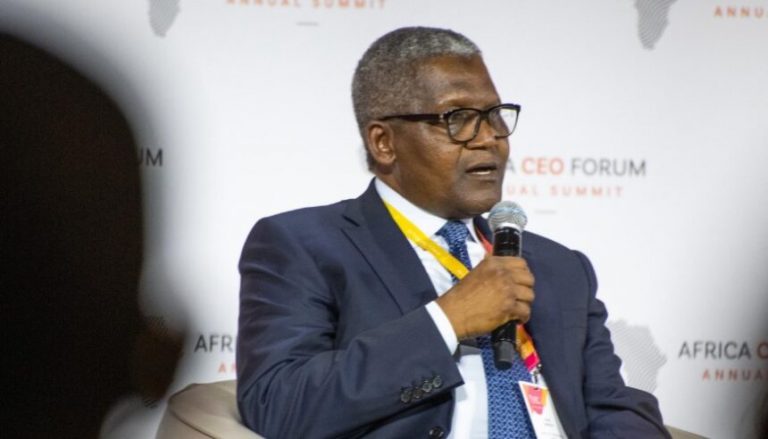The Dangote Group has denied allegations by the Depot and Petroleum Product Marketers Association of Nigeria that its refinery sells petrol to international traders at cheaper rates than those offered to Nigerian marketers.
DAPPMAN’s Executive Secretary, Olufemi Adewole, had alleged in an interview that members of the group purchased Dangote’s petrol through international traders in Lome, Togo, at prices N65 lower than what the refinery sells directly in Nigeria.
According to him, attempts by local marketers to buy petrol directly from the Dangote refinery had proved costlier, sometimes making it more viable to import the product from abroad.
“Dangote sells to international traders at N65 cheaper than what he is selling to us. In some instances, we were able to buy from those people and still bring it to Nigeria,” Adewole claimed.
Dangote Responds
Reacting in a statement on Monday, the Dangote Group described the claims as “misleading and inaccurate.” The refinery questioned why Nigeria’s petrol pump price is N865 per litre, while in Togo, the cost is more than double that figure.
“It is incorrect to claim that the price of petrol in Togo is lower than in Nigeria. A straightforward check reveals that the average pump price in Lomé stands at approximately 680 CFA francs per litre, equivalent to N1,826. This figure reflects the very scenario that DAPPMAN and its affiliates appear to advocate for in Nigeria,” the statement said.
The company insisted that its refinery had positioned Nigeria as the primary source of affordable petrol feedstock for West Africa, even though it imports more than 60 per cent of the crude oil it processes.
Dangote further accused some marketers of engaging in round-tripping practices—buying petrol produced in Nigeria, routing it through Togo, and then re-importing it into Nigeria at inflated prices.
“It is increasingly evident that DAPPMAN and some of its members are disproportionately focused on the importation of refined products, even admitting to round-tripping. What, then, is the business rationale behind this practice, especially when considering the substantial additional cost of transporting petroleum products from Lomé to Lagos, costs that run into billions of naira?” the statement queried.
The refinery argued that if the marketers’ true objective was to serve the Nigerian domestic market, they should have partnered directly with the Dangote refinery.
According to the group, local partners of the refinery already enjoy a range of benefits, including volume-based discounts, credit facilities, and logistics support, all of which help ensure affordability and availability of petroleum products across Nigeria.
“If their true intention is to serve the Nigerian domestic market, why not join the growing list of local partners of the Dangote refinery? These partners, in addition to receiving high-quality products, benefit from incentives designed to enhance local availability at a recommended rate agreed by all parties,” it said.
Dangote also clarified that there are pricing differences depending on the point of purchase—Single Point Mooring facilities or the gantry. While smuggling through the SPM is relatively easier, transporting products via land borders is more complicated and riskier, the company said.
The group added that for some operators, the fuel business in Nigeria has never truly been about supplying domestic consumers. Instead, it has become about arbitrage opportunities, where products are diverted to markets in the sub-region where prices are significantly higher.
“The reality is that for some operators, the business has never truly been about delivering petroleum products to Nigerian consumers. Instead, it revolves around arbitrage opportunities, where they can easily triple the value of products by diverting them to more lucrative markets in the sub-region,” Dangote stated.
The ongoing dispute highlights tensions between Nigeria’s largest private refinery and petroleum marketers, amid efforts by the government and industry to stabilise fuel prices. While DAPPMAN insists that Nigerian marketers are disadvantaged in pricing, Dangote maintains that its operations have positioned Nigeria as the most affordable fuel hub in West Africa.
As the standoff continues, industry stakeholders warn that resolving these differences will be critical to ensuring a steady fuel supply, protecting consumers, and achieving energy security in Africa’s largest oil-producing nation.

